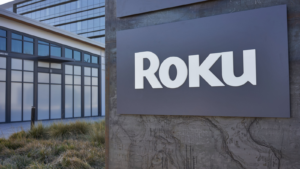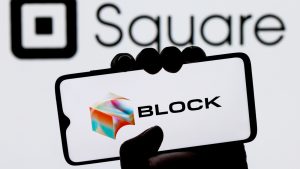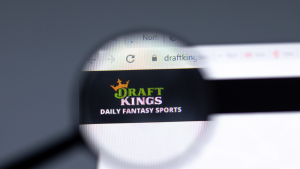
Cathie Wood’s flagship ARK Innovation ETF (NYSEARCA:ARKK) is up more than 67%, with only a few days left in 2023. It’s the first year of positive returns since 2020. That’s gotten investors interested in Cathie Wood stocks for 2024.
ARKK currently has $5.84 billion in net assets invested in 35 stocks. Its top 10 holdings account for nearly 62% of the portfolio.
While there are a bunch of interesting companies in Wood’s portfolio, some could make the argument that if you want to follow the portfolio’s top positions, you might as well buy the ETF.
However, that’s not the assignment here. Rather, it’s to select three stocks owned by Cathie Wood worth owning in 2024.
InvestorPlace’s Alex Sirois recently selected seven Cathie Wood stocks that make sense, given that interest rates are expected to be cut in 2024.
Here are my three ideas from Cathie Wood’s flagship fund.
Roku (ROKU)

Roku (NASDAQ:ROKU) is ARKK’s fourth-largest holding with a weight of 6.89%. Its stock is up 120% year-to-date (YTD).
Wood’s best-case scenario for the streaming platform’s stock is a $1,500 price target by 2026. That’s based on $32 billion in revenue and 1.3 billion connected TVs (CTVs) worldwide.
Further, with an estimated 186 million accounts by then, each watching 5 hours per day, that works out to 339.5 billion hours viewed over a year. That’s a lot of potential ad real estate it can sell to brands interested in capturing more of the streaming market eyeballs.
Rather than betting on any of the streaming services and their ability to generate digital ad revenue — although I’d definitely consider Netflix (NASDAQ:NFLX) given its business appears to be firing on all cylinders right now — Roku seems like a service-agnostic way to bet on the ongoing growth of the streaming business.
Block (SQ)

Block (NYSE:SQ) is the sixth-largest holding with a weight of 6.58%. Its stock is up 18% YTD.
BMO Capital Markets analyst Rufus Hone recently took over coverage of Block stock. He maintained its Outperform rating, cutting the price target by $9 to $84. The analyst believes that CEO Jack Dorsey’s moves to cut expenses are working, suggesting that its gross profits will continue to grow in 2024.
“We foresee durable gross profit growth across both Cash App and Square Seller over the medium-term, in tandem with much greater urgency around margin improvements,” Barron’s reported of the analyst’s comments.
“While we see significant execution risk in achieving SQ’s 2026 targets, we believe there could be a series of ‘quick wins’ for SQ to capture on the cost side, benefiting sentiment near-term.”
Since Hone’s comments were published on Dec. 5, SQ shares are up 17.3%. Investors clearly agree that Block’s margins are looking better heading into 2024.
DraftKings (DKNG)

DraftKings (NASDAQ:DKNG) is the 13th-largest holding with a weight of 2.98%. Its stock is up 210% YTD.
Cathie Wood isn’t the only one who likes DKNG stock. Of the 33 analysts covering its stock, 25 rate it Overweight or Buy, with a $42 target price, 22% higher than where it’s currently trading.
Since the sports betting and iGaming company reported excellent results on Nov. 2, its shares are up 18%. However, given how much its shares have gained in 2023, that was a letdown.
In the nine months ended Sept. 30, it used $73.8 million in cash flow in its operating activities, a significant improvement from -$477.1 million a year earlier. Other positives included a 76% increase in revenue ($2.43 billion) and an adjusted earnings before interest, taxes, depreciation and amortization (EBITDA) loss of $302.1 million, less than half its loss a year earlier.
The company continues to scale its business.
At the end of the third quarter, its mobile sports betting was in 22 states, representing 45% of the U.S. population. It’s also in Ontario, Canada, the largest province in the country, accounting for 40% of the population.
DKNG is definitely not done and is getting closer to non-GAAP profitability.
On the date of publication, Will Ashworth did not hold (either directly or indirectly) any positions in the securities mentioned in this article. The opinions expressed in this article are those of the writer, subject to the InvestorPlace.com Publishing Guidelines.




